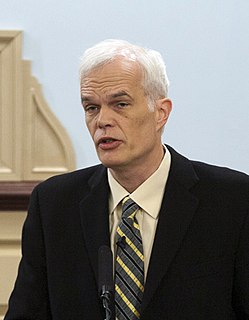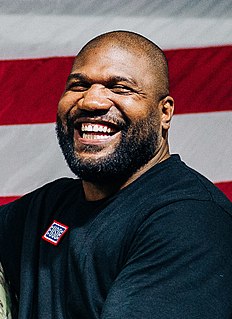A Quote by Alexander Hamilton
The true principle of a republic is that the people should choose whom they please to govern them. Representation is imperfect, in proportion as the current of popular favor is checked. The great source of free government, popular election, should be perfectly pure, and the most unbounded liberty allowed.
Related Quotes
I got elected president. I won easily. I won a race that should never be won by a Republican because it's so stacked in the Democrats' favor. I mean, if you figure California, New York, and Illinois, you start off with losing that - you have to run the entire East Coast and every - and the entire Midwest. I won an election that should never be won, because the Electoral College is far harder to win than the popular vote. The popular vote, for me, would have been much easier.
It is all the more necessary under a system of free government that the people should be enlightened, that they should be correctly informed, than it is under an absolute government that they should be ignorant. Under a republic the institutions of learning, while bound by the constitution and laws, are in no way subservient to the government.
There is an opinion that parties in free countries are useful checks upon the administration of the government, and serve to keep alive the spirit of liberty. This, within certain limits, is probably true, and, in governments of a monarchical cast, patriotism may look with indulgence, if not with favor, upon the spirit of party. But in those of the popular character, in governments purely elective, it is a spirit not to be encouraged.
An elective despotism was not the government we fought for, but one which should not only be founded on true free principles, but in which the powers of government should be so divided and balanced among general bodies of magistracy, as that no one could transcend their legal limits without being effectually checked and restrained by the others.
In proportion as the people are accustomed to manage their affairs by their own active intervention, instead of leaving them to the government, their desires will turn to repelling tyranny, rather than to tyrannizing: while in proportion as all ready initiative and direction resides in the government, and individuals habitually feel and act as under its perpetual tutelage, popular institutions develop in them not the desire of freedom, but an unmeasured appetite for place and power.
Popular culture as a whole is popular, but in today's fragmented market it's a jostle of competing unpopular popular cultures. As the critic Stanley Crouch likes to say, if you make a movie and 10 million people go see it, you'll gross $100 million - and 96 per cent of the population won't have to be involved. That alone should caution anyone about reading too much into individual examples of popular culture.
Richard Donner made great movies. Seminal movies. The Academy, though, and we have to be careful here, should recognize popular films. Popular films are what make it all work. There was a time when popular movies were commercial movies, and they were good movies, and they had to be good movies. There was no segregation between good independent films and popular movies.
Those who won our independence believed that the final end of the state was to make men free to develop their faculties... They valued liberty both as an end and as a means. They believed liberty to be the secret of happiness and courage to be the secret of liberty... that public discussion is a political duty; and that this should be a fundamental principle of the American government.


































